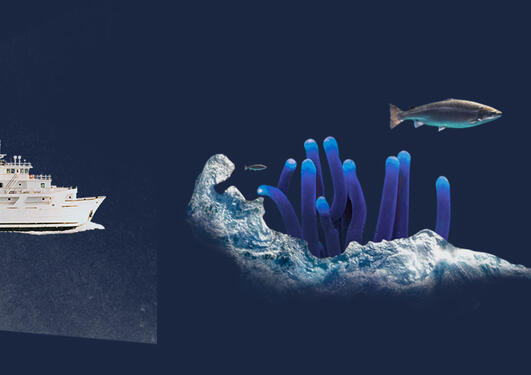Research possibilities for the SEAS postdoctoral research fellow in early human marine subsistence in South Africa
The information on this page is a supplement to the complete advertisement of the position in the recruitment-portal Jobbnorge. The full advertisement of this position in Jobbnorge will be available after august 1, and linked from this webpage. Call deadline is October 31, 2021.
Hovedinnhold
Position | SEAS postdoctoral research fellow at Centre for Early Sapiens Behaviour (SapienCE) |
Research area | Marine and coastal utilization during prehistory (120 – 50 ka) with reference to present marine subsistence practices in the southern Cape of South Africa |
Contact | Researcher Karen van Niekerk |
Mobility | For an incoming candidate |
Unit of employment | Department of Archaeology, History, Cultural Studies and Religion at University of Bergen |
Thematic area and contact
This position is connected to the theme: Marine and coastal utilization during prehistory (120 – 50 ka) with reference to present marine subsistence practices in the southern Cape of South Africa. The position is open to an incoming candidate see mobility rules. The successful candidate will be employed at the Department of Archaeology, History, Cultural Studies and Religion and included in the SapienCE Centre of Excellence on Early Sapiens Behaviour. Information about the Centre and research possibilities for the fellow is available below. For further details about the research and supervision possibilities please contact Researcher Karen van Niekerk.
Research possibilities and resources
Research environment in SapienCE: The Centre for Early Sapiens Behaviour (SapienCE) is a Centre of Excellence (CoE) established in 2017, funded by the Norwegian Research Council (https://www.uib.no/en/node/137103/). The centre is built around a team of international scientists specialized in the fields of archaeology, psychology and climatology, led by Professor Christopher Stuart Henshilwood.
Scientific opportunities: SapienCE focuses on the emergence of cultural innovation in Homo sapiens populations of southern Africa between 120,000 and 50,000 years ago. An inter-disciplinary team of scientists at the University of Bergen and international partners integrates high-resolution records of early human cultural, social, technological and subsistence behaviours with innovative geoarchaeological, climate and cognitive data and models. This holistic approach is providing groundbreaking insight into the diverse aspects of what it means to be human.
Homo sapiens populations started acquiring modern anatomical traits by ~300 000 years ago in Africa, but there is no evidence indicating that their behaviour was modern at the time. Current archaeological evidence, although limited, highlights the 120,000 – 50,000-year interval as a period of accelerated human cognitive, technological and social development. The fundamental causes of this critical transformation remain, however, debated. One often-proposed mechanism is the need to adapt to rapidly changing environmental conditions.
Description of project and motivation
At SapienCE we integrate knowledge and methods from different disciplines to synthesize approaches and contribute to a sophisticated understanding of early human behaviour. Our research program focuses on rare, well preserved archaeological sites, Blombos Cave, Klipdrift Shelter and Klasies River on the southern Cape coast of South Africa that were occupied in the period between 120,000 – 50,000 years ago that contain certain ‘keys’ for unlocking the past. Excellent preservation of shellfish at these sites allow us unique insights into the dietary component of these people but also on what species of shellfish were available across variable climatic phases.
Some proposed focal points:
- What are the effects on the availability and variability of marine resources that we can detect from the archaeological record and from present day research resulting from: i. Climate change; ii. Exploitation patterns; iii. the modern effects on marine availability due to overexploitation?
- The effects of differences in Benguela vs Agulhas currents’ confluence and flow, sea surface temperatures, nutrient supply from upwelling and freshwater input on intertidal productivity, resilience, and species distribution in the past and present
- The effects of fluctuating sea levels on availability of marine resources and species variability with a special focus on: i. Estuary formations (spawning grounds for fish); ii. Flooding of now submerged river courses; iii. Extinction of megafauna on the Palaeo-Agulhas Plain during rising post Last Glacial Maximum (LGM) sea levels and changes to species variability (e.g., hippos, grazing fauna, wetlands adapted fauna and microfauna) due to marine submergence of rivers, vleis etc.
- Glacial and inter-glacial changes in the Indian Ocean off the southern Cape and the effect it had on food security during the period under consideration. This study could be complemented with a modern-day comparison of existing seafood consumption in the region and the effects, for example, of overfishing and/or climate change.
- In terms of suitability for human habitation, how have changes in coastal and marine ecosystems influenced food resources and productivity?
The selected candidate will be encouraged to further develop and integrate their own research interests within the scope of the project.
SapienCE mentors and collaborators: Christopher Henshilwood, UiB/SapienCE/University of Witwatersrand (WITS), Karen van Niekerk, UiB/SapienCE, Carin Andersson Dahl NORCE/SapienCE, Eystein Jansen, Department of Earth Science University of Bergen (UiB)/NORCE/SapienCE (Earth Sciences/Paleoclimatology), Sarah Wurz WITS/SapienCE, Mimi E. Lam, Centre for the Study of the Sciences and the Humanities, UiB, Jan De Vynck, Nelson Mandela Bay University/African Centre for Coastal Palaeoscience (ACCP), Steve du Toit, Gouritz Cluster Biosphere Reserve, Hayley Cawthra, Council for Geoscience/ACCP.
See the full advertisement in Jobbnorge
The full advertisement in Jobbnorge will be available after august 1, 2021. Call deadline is October 31, 2021.
